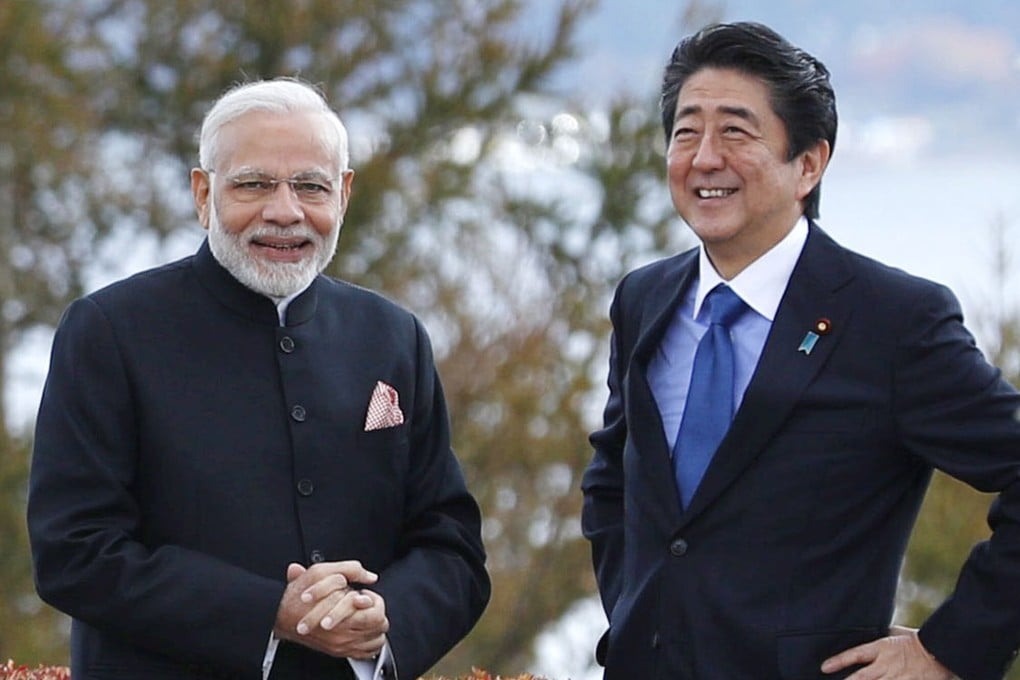With Shinzo Abe’s resignation, India loses its best friend and ally in Japan
- Under Abe, the biggest champion of relations between the two nations, Japan has become a vital investor in India and a major strategic ally. It will be no easy task for New Delhi to nurture a similar friendship with Abe’s successor

Under Abe, Japan has become a major player in the Indian economy. As India’s third-largest investor, Tokyo has invested more than US$32 billion since 2000. India is a key market for many Japanese companies.
The Japanese economy slumped 7.8 per cent in April-June from the previous quarter. In response to supply-chain disruptions from the coronavirus pandemic, Japan launched a massive stimulus package that included 220 billion yen (US$2 billion) for companies shifting production in China back to Japan and 23.5 billion yen for those relocating China production elsewhere. India is likely to benefit; Japan is reportedly planning a new industrial hub in the northeastern state of Assam.

02:19
Japan’s Prime Minister Shinzo Abe resigns for health reasons

